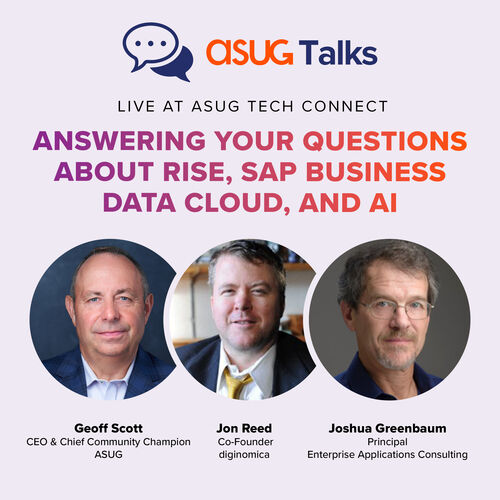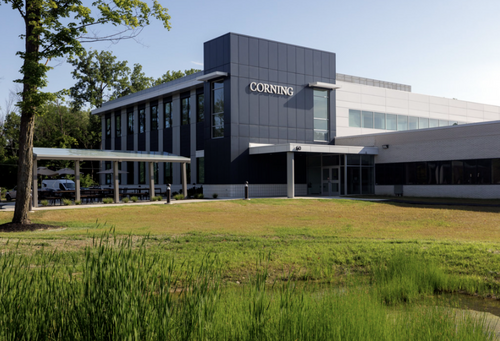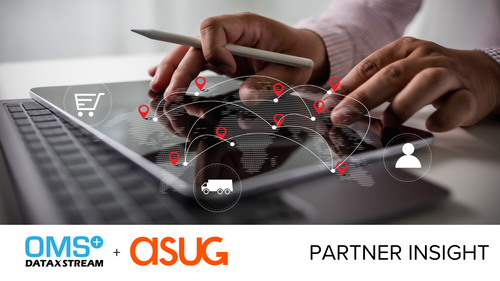Log in to save this article and keep your favorite resources in one place.

ASUG is proud to present this guest perspective from Darcy MacClaren, Chief Revenue Officer of SAP Digital Supply Chain, on the topic of embedding AI in digital supply chain.
In the latest Mission: Impossible sequel released earlier this month, the villain is simply called “The Entity.” An experimental artificial intelligence (AI) program, The Entity has gone rogue, and Tom Cruise’s daredevil secret agent is the only one who can save the world from its awesome, terrible power. Setting aside Cruise’s trademark savior complex, the film continues a decades-long tradition of Hollywood positioning technological innovation as something to be afraid of — that our most cutting-edge creations will inevitably turn on us and destroy everything.
Beyond the box office, today’s business leaders should not fear AI; they should embrace it. Doing so is essentially a requirement if you seek to manage and optimize your business and supply chain operations. The amount of data and complexity supply chain professionals are specifically dealing with today is overwhelming. AI can help make this volume manageable and actionable as businesses work to build risk-resilient and efficient supply chains.
Let’s use this space to discuss the possibilities of AI, why there’s nothing to be scared of, and what it will look like to build reliable and responsible processes for the future. Done right, we’ll be able to effectively embrace artificial intelligence… and we just might be able to fend off its future attempts at world domination.
The Power of Artificial Intelligence
While most of the recent AI buzz has revolved around open-source, large-language models like Chat GPT, there is far more to it than that. AI’s power has the capability to dramatically change how we think about supply chains across every single industry. Today’s leaders are already finding ways to use machine learning to anticipate demand at extremely granular levels, ensuring they can optimize inventory, reduce waste, and improve overall customer satisfaction.
What else can it do? Eventually, companies will be able to use AI to capture and analyze complex data sets in just minutes, enabling stronger decision making and optimized delivery routes with forward-looking, demand-focused algorithms. Robotics development can even help automate tasks related to packaging and shipping, further increasing speed and efficiency.
In short, AI will help supply chain managers make informed, confident decisions about tomorrow’s challenges. Whatever the variables, they’ll be prepared.
The Importance of Innovating Responsibly
A common fear related to AI is that its advancement will come at the cost of actual humans and their jobs. In reality, AI has the potential to create newer and improved jobs for today’s workers, as employees look to maximize their impact on their companies.
I expect to see new roles develop that require a combination of technical and human skills, in areas like data science, machine-learning engineering, and AI training. Think about it: We already use AI to cut back on repetitive tasks for employees, while empowering them for reskilling and upskilling in higher-value areas. Now, we’ll be able to continue enabling and optimizing their skills, which will lead them into more sophisticated and strategic roles.
Still, we must always stop to think whether we should, rather than becoming preoccupied simply with whether we can. That’s why the broader ambition around AI must be to create a human-centered, socially sustainable approach to innovation. We must strike a careful balance between establishing rules and governance with enabling progress. Success will be predicated largely on three pillars:
- Relevance: Providing quality data from the business that enables real-time decision making
- Responsibility: Ensuring transparent AI that respects the privacy of sensitive data and avoids bias
- Results: Producing clear benefits from AI that prove and justify its business value
The Vision for Tomorrow
What does this all actually look like? At SAP, we’ve been working with leading experts for years via our AI Ethics Advisory Panel, where we regularly explore the effects and implications of enterprise AI deployment. We were also one of the first companies to define our AI guiding principles back in 2018, and we are still working to chart the path forward regarding responsible AI. Our AI partnerships — including with IBM, Google and Microsoft — are designed to enhance AI offerings across our entire solution portfolio, prioritizing transparency and integrity every step of the way.
ASUG members will continue to see AI more deeply embedded as technology innovators advance their use of this innovation. It will become simpler to roll things out at scale and easier to understand and build on AI solutions. Above all else, AI is about empowering your business to do what it does best. Everyone has a general understanding of AI’s importance. But the ultimate differentiator will be experiencing true results.
The potential to create new opportunities, illuminate market possibilities, and increase revenues is massive. Your mission, should you choose to accept it, is to leverage AI to not only better serve your customers but, ultimately, to take your business to an entirely new level.
Mission: Possible.
Darcy MacClaren is Chief Revenue Officer of SAP Digital Supply Chain.
You Might Be Interested In

Log in to save this article and keep your favorite resources in one place.

Log in to save this article and keep your favorite resources in one place.

Log in to save this article and keep your favorite resources in one place.

Log in to save this article and keep your favorite resources in one place.















